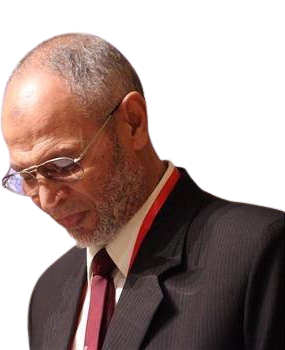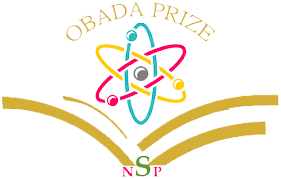About
Obada Prize
Obada-Prize is an international award. Initiated as a recognition of his excellence Professor Abdel-Shafy Obada. The Obada-Prize recognizes and encourages innovative and interdisciplinary research that cuts across traditional boundaries and paradigms. It aims to foster universal values of excellence, creativity, justice, democracy, and progress and to promote the scientific, technological and humanistic achievements that advance and improve our world.
At the Obada-Prize Ceremony, the Obada-Prize Laureates receive three things:
i) Certificate,
ii) Obada-Prize Medal
iii) a document confirming the Obada-Prize amount which can be used as a waver code for the publication fees in NSP International Journals.
There are three categories:
1. Distinguished Researcher
2. The target group is researchers who are aged 40 or below
3. Undergraduate and Post Graduate Students (The prize will be awarded according to the students presentation and no need to send a published work)


1. NATURAL
SCIENCES
1.1 Mathematics
1.2 Computer and information sciences
1.3 Physical science
1.4 Chemical sciences
1.5 Earth and related Environmental sciences
1.6 Biological science, (medical to be 3, and
agricultural to be 4)
1.7 Other natural sciences
2.
ENGINEERING AND TECHNOLOGY
2.1 Civil engineering
2.2 Electrical engineering, Electronic
engineering, Information engineering
2.3 Mechanical engineering
2.4 Chemical engineering
2.5 Materials engineering
2.6 Medical engineering
2.7 Environmental engineering
2.8 Environmental biotechnology
2.9 Industrial biotechnology
2.10 Nano-technology
2.11 Other engineering and technologies
3. MEDICAL
AND HEALTH SCIENCES
3.1 Basic medicine
3.2 Clinical medicine
3.3 Health Sciences
3.4 Medical biotechnology
3.5 Other medical sciences
4.
AGRICULTURAL SCIENCES
4.1 Agriculture, Forestry, and Fisheries
4.2 Animal and Dairy science
4.3 Veterinary science
4.4 Agricultural biotechnology
4.5 Other agricultural sciences
5. SOCIAL
SCIENCES
5.1 Psychology
5.2 Economies and Business
5.3 Educational sciences
5.4 Sociology
5.5 Law
5.6 Political science
5.7 Social and economic geography
5.8 Media and communications
5.9 Other social sciences
6.
HUMANITIES
6.1 History and Archaeology
6.2 Languages and Literature
6.3 Philosophy, Ethics and Religion
6.4 Arts (arts, history of arts. performing
arts, music)
6.5 Other humanities
